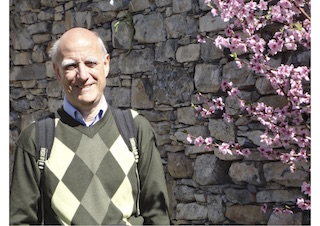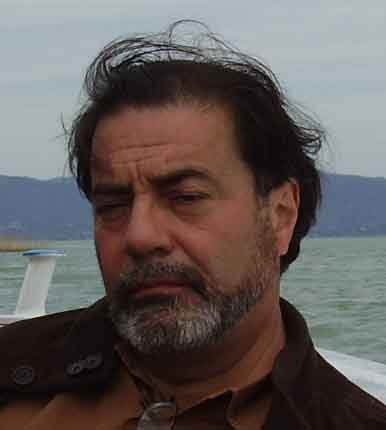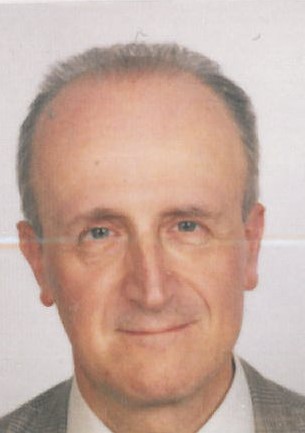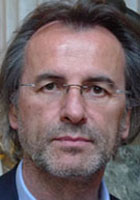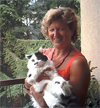Studying at the University of Verona
Here you can find information on the organisational aspects of the Programme, lecture timetables, learning activities and useful contact details for your time at the University, from enrolment to graduation.
Academic calendar
The academic calendar shows the deadlines and scheduled events that are relevant to students, teaching and technical-administrative staff of the University. Public holidays and University closures are also indicated. The academic year normally begins on 1 October each year and ends on 30 September of the following year.
Course calendar
The Academic Calendar sets out the degree programme lecture and exam timetables, as well as the relevant university closure dates..
| Period | From | To |
|---|---|---|
| semestrino IA | Oct 1, 2012 | Nov 21, 2012 |
| Semestrino IB | Nov 26, 2012 | Jan 23, 2013 |
| Semestrino IIA | Feb 25, 2013 | Apr 20, 2013 |
| Semestrino IIB | Apr 22, 2013 | Jun 7, 2013 |
| Session | From | To |
|---|---|---|
| Sessione invernale | Jan 24, 2013 | Feb 23, 2013 |
| Sessione estiva | Jun 10, 2013 | Jul 31, 2013 |
| Sessione autunnale | Sep 2, 2013 | Sep 28, 2013 |
| Sessione invernale A. A. 2012/2013 | Jan 20, 2014 | Feb 23, 2014 |
| Session | From | To |
|---|---|---|
| Sessione estiva - I appello | Jun 18, 2013 | Jun 19, 2013 |
| Sessione estiva - II appello | Jul 9, 2013 | Jul 10, 2013 |
| Sessione autunnale - I appello | Oct 15, 2013 | Oct 16, 2013 |
| Sessione autunnale - II appello | Nov 19, 2013 | Nov 20, 2013 |
| Sess. Invernale | Mar 18, 2014 | Mar 20, 2014 |
| Period | From | To |
|---|---|---|
| Festa di Ognissanti | Nov 1, 2012 | Nov 1, 2012 |
| Festa dell'Immacolata Concezione | Dec 8, 2012 | Dec 8, 2012 |
| Vacanze di Natale | Dec 21, 2012 | Jan 6, 2013 |
| Vacanze di Pasqua | Mar 29, 2013 | Apr 2, 2013 |
| Festa della Liberazione | Apr 25, 2013 | Apr 25, 2013 |
| Festa dei Lavoratori | May 1, 2013 | May 1, 2013 |
| Festa del Santo Patrono di Verona - San Zeno | May 21, 2013 | May 21, 2013 |
| Festa della Repubblica | Jun 2, 2013 | Jun 2, 2013 |
| Vacanze estive | Aug 9, 2013 | Aug 16, 2013 |
Exam calendar
Exam dates and rounds are managed by the relevant Humanistic Studies Teaching and Student Services Unit.
To view all the exam sessions available, please use the Exam dashboard on ESSE3.
If you forgot your login details or have problems logging in, please contact the relevant IT HelpDesk, or check the login details recovery web page.
Academic staff

Avezzu' Guido
 guido.avezzu@univr.it
guido.avezzu@univr.it
 augusto.barbi@univr.it
augusto.barbi@univr.it
 alberto.cavarzere@univr.it
alberto.cavarzere@univr.it

Mastrocinque Attilio
 attilio.mastrocinque@univr.it
attilio.mastrocinque@univr.it
 +39 045802 8386
+39 045802 8386
 linda.napolitano@univr.it
linda.napolitano@univr.it
 stefania.pontrandolfo@univr.it
stefania.pontrandolfo@univr.it
 gianmaria.varanini@univr.it
gianmaria.varanini@univr.it
Study Plan
The Study Plan includes all modules, teaching and learning activities that each student will need to undertake during their time at the University.
Please select your Study Plan based on your enrollment year.
1° Year
| Modules | Credits | TAF | SSD |
|---|
Un insegnamento a sceltaLingua straniera competenza linguistica liv. b1 (informatizzato)2° Year activated in the A.Y. 2013/2014
| Modules | Credits | TAF | SSD |
|---|
Un insegnamento a sceltaUn insegnamento a scelta Uno o due insegnamenti a scelta per un totale di 12 cfuUn insegnamento a scelta per un totale di 6 cfu3° Year activated in the A.Y. 2014/2015
| Modules | Credits | TAF | SSD |
|---|
Da due a quattro insegnamenti a scelta per un totale di 24 cfuUno o due insegnamenti a scelta per un totale di 12 cfu| Modules | Credits | TAF | SSD |
|---|
Un insegnamento a sceltaLingua straniera competenza linguistica liv. b1 (informatizzato)| Modules | Credits | TAF | SSD |
|---|
Un insegnamento a sceltaUn insegnamento a scelta Uno o due insegnamenti a scelta per un totale di 12 cfuUn insegnamento a scelta per un totale di 6 cfu| Modules | Credits | TAF | SSD |
|---|
Da due a quattro insegnamenti a scelta per un totale di 24 cfuUno o due insegnamenti a scelta per un totale di 12 cfu| Modules | Credits | TAF | SSD |
|---|
Legend | Type of training activity (TTA)
TAF (Type of Educational Activity) All courses and activities are classified into different types of educational activities, indicated by a letter.
Italian Literature FI (i+p) (2013/2014)
Teaching code
4S02159
Teacher
Coordinator
Credits
12
Language
Italian
Scientific Disciplinary Sector (SSD)
L-FIL-LET/10 - ITALIAN LITERATURE
Period
Sem IA, Sem IB
Learning outcomes
The course aims to offer students insights into the nature and working of Italian literary tradition, considering its main characteristics, topics and literary forms from the origins until Italian Unification.
Program
Prerequisites: students must have a general knowledge of Italian Literature
Course content: For the introductory part: presentation of the main movements and authors of the Italian literary tradition from the origins until Italian Unification, making reference to exemplary texts.
For the main part of the course: Reading of the Dante’s Inferno
Reference Texts: For the introductory part, both for attending and non-attending students: Gino Tellini, Letteratura italiana. Un metodo di studio, Firenze, Le Monnier Università, 2011 (the first two sections: Dalle origini al Rinascimento and Dalla Nuova Scienza all’epica risorgimentale, pp. 3-336).
For the main part of the course: for the first canticle of Dante’s Comedy we recommend one of the following editions with comment: the Divine Comedy edited by Natalino Sapegno (la Nuova Italia), or by Emilio Pasquini and Antonio Enzo Quaglio (Garzanti), or by Anna Maria Chiavacci (Mondadori).
Critical bibliography: for a first introduction to Dante’s Comedy it is necessary to study the introductions of the recommended critical editions and the following texts:
Giorgio Inglese, Dante: guida alla Divina Commedia, Roma, Carocci.
Further texts and readings will be given during the lessons. For a in-depth analysis of Dante and his work the following texts are recommended (they are not compulsory for attending students):
Bruno Nardi, Dante e la cultura medievale, Roma-Bari, Laterza;
Eric Auerbach, Studi su Dante, Torino, Einaudi;
Gianfranco Contini, Un’idea di Dante, Torino, Einaudi;
Marco Santagata, L’io e il mondo. Un’interpretazione di Dante, Bologna, il Mulino.
Per una storia dell’inferno: George Minois, Piccola storia dell’inferno, Bologna, il Mulino (it is not compulsory for attending students).
Non-attending students must demonstrate a precise knowledge of at least fifteen cantos of Dante’s Inferno, study Giorgio Inglese, Dante: guida alla Divina Commedia (Roma, Carocci) and at least two among the above mentioned critical essays. A written list of the cantos and of the critical texts that have been chosen for the oral exam has to be shown during the test.
Didactic methods: Lectures and eventually seminars.
Examination Methods
Oral examination.
Type D and Type F activities
Modules not yet included
Career prospects
Module/Programme news
News for students
There you will find information, resources and services useful during your time at the University (Student’s exam record, your study plan on ESSE3, Distance Learning courses, university email account, office forms, administrative procedures, etc.). You can log into MyUnivr with your GIA login details: only in this way will you be able to receive notification of all the notices from your teachers and your secretariat via email and also via the Univr app.
Student mentoring
Linguistic training CLA
Gestione carriere
Practical information for students
Documents
| Title | Info File |
|---|---|
|
|
pdf, it, 325 KB, 16/07/24 |
|
|
pdf, it, 212 KB, 02/05/23 |
|
|
pdf, it, 131 KB, 02/05/23 |
Graduation
Documents
| Title | Info File |
|---|---|
|
|
pdf, it, 109 KB, 12/07/24 |
|
|
pdf, it, 112 KB, 14/05/24 |
List of thesis proposals
Stage e Tirocini
Student login and resources
Modalità e sedi di frequenza
La frequenza non è obbligatoria.
Maggiori dettagli in merito all'obbligo di frequenza vengono riportati nel Regolamento del corso di studio disponibile alla voce Regolamenti nel menu Il Corso. Anche se il regolamento non prevede un obbligo specifico, verifica le indicazioni previste dal singolo docente per ciascun insegnamento o per eventuali laboratori e/o tirocinio.
È consentita l'iscrizione a tempo parziale. Per saperne di più consulta la pagina Possibilità di iscrizione Part time.
Le sedi di svolgimento delle lezioni e degli esami sono le seguenti
- Polo Zanotto (vicino si trova il Palazzo di Lettere)
- Palazzo ex Economia
- Polo Santa Marta
- Istituto ex Orsoline
- Palazzo Zorzi (Lungadige Porta Vittoria, 17 - 37129 Verona)
- Chiostro Santa Maria delle Vittorie, Lungadige Porta Vittoria, 41


